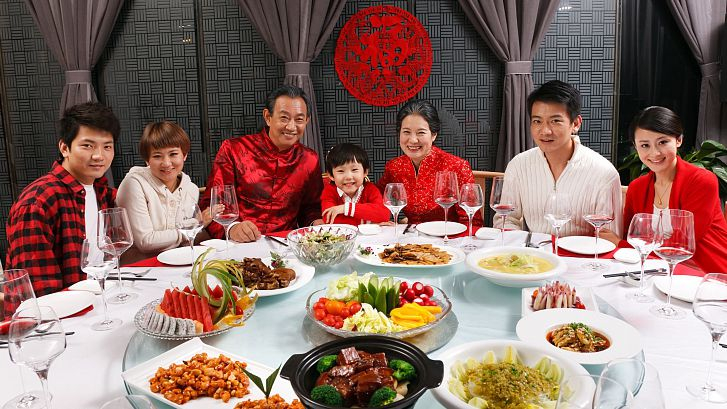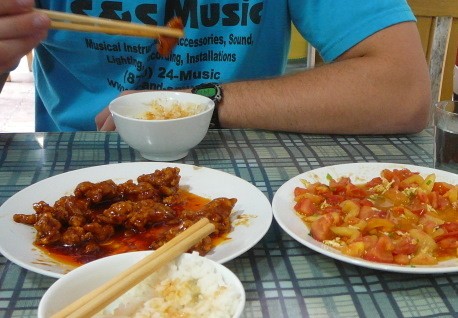20 New Reasons To A Culinary Journey Through China
20 New Reasons To A Culinary Journey Through China
Blog Article
Top 10 Tips For Street Food Safety In China
1. TIP: Look for high-volume vendors. If you want to be sure that your food items are fresh, choose vendors with long lines.Pro A high turnover rate indicates freshness, and popularity with locals.Cons: Waiting in line can be time-consuming.
2. Observe Hygiene PracticesTip: Look for vendors wearing gloves Keep their areas clean and refrain from handling food with hands that aren't clean.Pro: Lowers the risk of foodborne illness.Cons: Hygiene standards could limit your choices.
3. Avoid Uncooked FoodsTo avoid bacteria, only consume food that has been cooked. Examples include grilled Skewers (or dumplings that are fried) as well as steamed buns and steaming dumplings.Pro The food that is cooked is less likely raw food to cause foodborne illness.The cons are that your options are limited as you could be tempted by raw food like sashimi.
4. Inspect IngredientsTips: Examine the appearance and odor of the food. Fresh ingredients should be fresh and clean with no odor.Pro: It is a good idea to avoid spoiled or inferior ingredients.Con: It could be difficult to discern the freshness of food, if one does not have experience.
5. Buy Bottled or Boiled BeveragesAvoid drinking tap water. Instead, look for canned drinks, canned beverages, and teas that are made with boiled or cooled water.Pro: Helps prevent waterborne illness.Cons: There are a few choices, particularly for street vendors.
6. Start SmallTips: Try a small portion of food you've never tried before to see what your body's reaction.Pro: Reduces the risk of a serious digestive issue.Con: It may not satisfy your craving if the food turns out to be safe and delicious.
7. Do not drink ice.Beware of ice cubes since they are made from tap water that has not been treated.Pro: Guards you against potential contamination of water.Con: Drinks can be less refreshing during hot weather.
8. Look for Items That Are Freshly MadeTIP: Pick food items that are cooked directly in front of your eyes, ensuring it hasn't been in the kitchen for a long period of time.Pro: Reduces the risk of contamination from prolonged exposure.Con: Certain street food items prepared beforehand may be impossible to resist or even irresistible.
9. Sanitizer Carry HandUse wet or dry wipes or hand sanitizer prior to eating If you don't have access to handwashing facilities.Pros: Decreases the likelihood of transferring bacteria from your hands onto food items.Cons: You might need to carry more items, which can be a hassle.
10. Don't be afraid to trust your instinctsTip: Avoid eating any food that has a smell or looks off.Pro: It allows you to avoid food that can make you sick.Cons: Could lead to skipping out on authentic experiences because of over-caution.
Street Food is Good for You in ChinaDelicious and affordable Street food is typically inexpensive and full of authentic flavors.Convenient : There are vendors everywhere. It's easy to get a quick food or snack.Experience the rich culture of local cuisine by dining at stalls on the streets.There are many options that range from Jianbing, (savory crepes) as well as Chuan'r (grilled skewers), there is an array of options.Pros and Cons of Street Food In ChinaHygiene concerns: Foodborne illnesses could be a risk particularly at less well-known stalls.Allergy Risks: Many ingredients are not divulged to allergy sufferers who suffer from allergies, which could be a challenge.The language barrier may make it difficult to understand the ingredients or how they are prepared.Overeating Temptation: The wide variety can lead to overeating and cause upset to your stomach.By following these safety guidelines, you can confidently enjoy China's lively street food culture and minimize health risks. Read the most popular Chinese food you must try for website advice including a guide to China food scene, explore local Chinese cuisine, a culinary journey through China, regional Chinese cuisine highlights, discover hidden food gems in China, taste your way through China, top Chinese food experiences, China famous food destinations, discover China regional dishes, discover hidden food gems in China and more.
Top 10 Tips To Visit Temples During Different Seasons In China
1. Visit During Off-Season. (Autumn/Winter).Tip. It is the time when fewer visitors are visiting and the weather tends to be cooler.
Pro: It's quieter and gives a more tranquil experience.Cons: The weather can be colder and this could make outdoor temple tours less comfortable.2. Be prepared for weather extremesThe temperature can vary greatly during different seasons. Winters can be extremely cold, but summer temperatures are usually hot. Pack accordingly.
Pro: Having prepared for any weather condition, you'll feel comfortable on your visit.It can be difficult especially if you're travelling in a small amount.3. Visits in the Spring and Summer to See Vibrant FloraA tip: Visiting temples in the spring and summer months allows you to take in stunning gardens, flowering flowers, and lush landscapes around the temples.
Visit the temple grounds to admire the breathtaking scenery.Con The summer months in America can be extremely hot and crowded. This is especially true on national holidays.4. Consider Festivals and Special EventsTips: Plan your visit during traditional celebrations like Chinese New Year (January/February) or the Mid-Autumn Festival (September). These festivals provide a range of ceremonies and rituals as well as a chance to take in the vibrant culture of the temple.
Pro: There are a lot of temples which offer traditional and exciting events. This is an excellent method to learn about a different culture.Con: During the festival season, temples can get very crowded and prices for accommodation may rise.5. Beware of Peak Holiday SeasonsAvoid visiting during peak tourist season (e.g. Chinese New Year or Golden Week in October) When temples are crowded both with local and international tourists.
Pro: A more peaceful experience, without the noise of crowds.Con: You may be missing out on special festival events when they are at their best.6. Check for Winter Closures of Temples.Tips: Some temples might have limited hours or be closed during the colder winter months, especially in remote regions or northern regions. It is always best to verify in advance.
Cons: You won't spend time, and you will be able to plan your other activities.Con: Many temples are either closed or reduced in hours to allow for construction work. This could lead to frustration.7. Early Morning visits to SummerTip: If visiting in the summer months, make sure to arrive early in the early morning to avoid the hot midday heat. A lot of temples are open early in the morning. The atmosphere is calmer and less crowded.
The cooler temperatures and lack of crowds create a more peaceful vacation.Cons Cons: Getting up early may not be for everyone.8. Be Prepared for Rain in the summer.Tipp A word of caution: The heavy rains that are common during the summer, especially in the southern part of China. If you're planning to visit during this time, pack an umbrella or rain gear to stay comfortable.
You can still appreciate the magnificence of the temple even in the event of rain.Con: Rain may interfere with outdoor activities, and make temples slippery.9. The best time of the year is in autumn to visit mountain templesTip: The autumnal foliage provides a stunning backdrop to temples located in mountains (e.g. Mount Wutai and Mount Emei), as it's the time of year when the weather is pleasant.
Pros: The scenic views and cooler temperatures make hiking and outdoor exploration more enjoyable.Con A: Mountain temples that are popular can still draw large crowds, especially during holidays or weekends.10. You can use the lunar calendar for planning specific eventsTIP: A lot of temples in China use the lunar date calendar. Certain events and rituals are also tied to certain lunar dates. To attend events like Buddha's Birthday and the Lantern Festival in China, it is recommended to check the lunar calendar.
Pro: Unique cultural experience and deeper insight into local spiritual practices.Cons: Planning your travel schedule around lunar calendars may require extra time and you could discover that the lunar calendar does not line up with the dates of your travel.The advantages of a seasonal excursion to Chinese templesLess crowds during off-season trips offer the opportunity to relax and reflect.Cultural Events: Festivals provide an opportunity to learn more about the local cultural and religious traditions.Scenic Beauty: Spring and autumn are great time to go. You can enjoy beautiful landscapes as well as vibrant gardens at temples.Cooler temperatures Autumn and winter are ideal for exploring temples.Cons of Visits to Chinese Temples during the SeasonUnpredictable Weather: Winter could be cold and summer may be too hot, which can affect your comfort.Certain temples are closed during extreme weather or during off-season.Afraid of crowds during festivals: The most popular holidays and festivals can bring large crowds that make it difficult to fully appreciate the peaceful atmosphere of the temple.Limited Activities: If you are traveling outside of the time of the year, certain seasonal events may not be happening.Select the appropriate time of year for visiting China's most well-known temples and plan accordingly. It will guarantee that you will have a memorable trip. Understanding the dynamics of the seasons is crucial to making the most out of any excursion. Take a look at the best top Chinese food experiences for blog tips including China famous food destinations, experience traditional Chinese food, discover China regional dishes, from street food to fine dining in China, the ultimate guide to Chinese cuisine, culinary tours of China best cities, explore diverse Chinese dishes, the best food destinations in China, explore the riChness of Chinese food, food guide to China best cities and more.